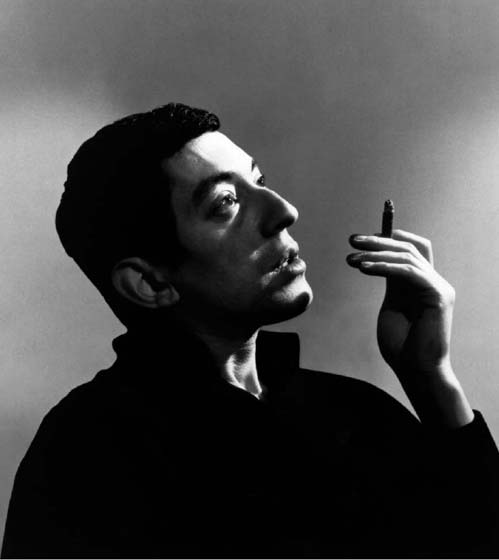The Encyclopedia of Dead Rock Stars (136 page)
Read The Encyclopedia of Dead Rock Stars Online
Authors: Jeremy Simmonds

Monday 21
Rob Graves
(Rob Ritter - California,
c
1960)
The Gun Club
45 Grave
(Various acts)

The CV of bassist/songwriter Rob Ritter – more widely known by his witty pseudonym – reads like a glossary of Los Angeles punk and goth-metal during the early eighties. Ritter/Graves performed with many bands concurrently, his most prolific work probably that with 45 Grave, a California band (who began as Vox Pop) comprising the bassist, the delightful Dinah Cancer (Mary Simms, vocals), Paul Cutler (guitar), Paul Roessler (keyboards) and Don Bolles (ex-The Germs, drums). This visually arresting group cut at least one notable single, ‘Black Cross’ (1981). Simultaneously, Ritter was bassist with an early line-up of the Jeffrey Lee Pierce-fronted Gun Club, playing on that band’s classic debut
Fire Of Love
(1981). Other appearances of this ubiquitous guitarist include The Nymphs, The Bags, Silver Chalice (with former 45 Grave buddy Bolles) and the brilliantly named Thelonious Monster. The scene’s inevitable hotbed of drug culture, however, put Ritter in a precarious position, and the musician overdosed on heroin while in New York.
See also
Nigel Preston ( May 1992); Jeffrey Lee Pierce (
May 1992); Jeffrey Lee Pierce ( March 1996); Nick Sanderson (
March 1996); Nick Sanderson ( June 2008)
June 2008)
FEBRUARY
Tuesday 12
Roger Patterson
(Florida, 1968)
Atheist

One of the most progressive and ‘musicianly’ of the Sunshine State’s seemingly endless litany of death-metal acts, Atheist began life as RAVAGE (which hid the most contrived of acronyms: ‘Raging Atheists Vowing A Gory End’) before wisely settling on the name under which they developed a solid and – dare one say it – devout following. Beneath the blistering riffs adorning their debut album,
Piece Of Time
(1988), Atheist actually wove Latin and jazz elements into their sound. Before a second album could be issued, however, the group were involved in a horrific crash, returning in their van from a tour opening for Swedish band Candlemass. Although most of the band survived with severe bruising, bassist and founder Roger Patterson died at the roadside, apparently in the arms of singer/guitarist Kelly Schaefer.
Where he is now is anyone’s guess, but being the first notable death-metaller to make the chronology, Roger Patterson should perhaps be dubbed ‘number one in hell’. Ironically, his obituary was bumped down the pages of music papers that week by the passing of gospel pioneer the Reverend James Cleveland.
MARCH
Friday 1
Frank Esler-Smith
(London, 5 June 1948)
Air Supply

While musical director for the Australian stage production of
Jesus Christ Superstar,
keyboardist Frank Esler-Smith met singer Russell Hitchcock, who held a major role, and the pair began a relationship that was to culminate in multiplatinum album sales during the early eighties. Spending a couple of years writing together, Esler-Smith and Hitchcock founded Air Supply in 1976 – augmented by Graham Russell (vocals, also a
JCS
cast member), David Moyse (guitar), David Green (bass) and Ralph Cooper (drums) – and signed with Arista at the start of 1980. Air Supply’s popularity in the US was particularly striking, their lushly orchestrated (if somewhat insipid) ballads spawning eight Top Five hits in three years – ‘The One That You Love’ (1981) gave them a number one. The group’s best-known and biggest-selling record, however, was 1980’s ‘All out of Love’, the only notable hit in a British market that otherwise remained stubbornly resistant.
After the emotionally draining ‘Making Love out of Nothing at All’ (1983) felt like one uber-production too many, the USA also began to weary of Air Supply’s rose-tinted outings and the group finally called it a day in 1988. Having returned to Australia, Esler-Smith passed away quietly from pneumonia three years later.
Saturday 2
Serge Gainsbourg
(Lucien Ginzburg - Paris, 2 April 1928)

One of the great characters of French popular music, Serge Gainsbourg was born to Jewish-Russian parents. His distinctive presence – in his final years he was most-often spotted in deliberately dishevelled state – helped him find frequent work as a director and actor, though this was secondary to his main loves of art and music. Gainsbourg had been classically trained as a pianist, but chose to move away from the traditional Boris Vian-styled
‘chansons’
of his early work when popular music broke free of the naive mould during the sixties. The singer was already in his forties by the time he made his best-known recording,
Je t’aime (moi nonplus),
which was issued to uproar in 1969, its supposedly sexually explicit content (one or two grunts and groans some seven years before Donna Summer turned ‘faking it’ into an industry) even provoking outrage from the Vatican. The song was actually a highly evocative piece, making a household name out of British singer/actress Jane Birkin, who later became Gainsbourg’s wife. (Originally,
Je t’aime’
had been recorded with Brigitte Bardot, who withdrew her vocal when the publicity became too much.) That summer, the song became the UK’s first banned number-one single. Gainsbourg made a number of other records, including the critically acclaimed album
Histoire de Melody Nelson
(1971, dedicated to Birkin and based on Nabokov’s novel
Lolitaa)
and some exceedingly off-the-wall offerings such as ‘Rock around the Bunker’ (1975, which echoed the black humour of Mel Brooks’s
The Producers)
and even a hip-hop-flavoured collection,
You’re Under Arrest,
his last release in 1987. (Well, why not hip hop? Eight years earlier he’d reworked ‘The Marseillaise’ with reggae legends Sly Dunbar and Robbie Shakespeare – the record went to number one in France.)
